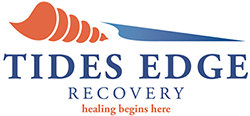Substance abuse disorders impact and change your brain chemistry, including your brain’s pleasure and reward center. Once you become addicted to a substance, it can be difficult to quit, as can be seen in our client testimonials. Intense cravings and withdrawal symptoms make personalized addiction treatment an important step in the recovery process. Substance abuse disorders are chronic, incurable conditions that worsen over time. The longer you abuse drugs and alcohol without getting help, the more damaging the consequences become.
Addiction doesn’t discriminate. Anybody, regardless of their background, income, education or age, can develop a substance misuse disorder. More than 10% of American adults meet the criteria for a substance abuse disorder. Addiction can also be deadly. Drug overdoses are the leading cause of accidental in the United States and can decrease your life span, cause medical and psychological problems and destroy your personal relationships.
Need to know more about substance abuse treatment? Call us today at 866.723.3127.
What is Addiction?
Addiction and substance abuse problems are considered chronic and progressive mental health disorders that change your thinking process, emotions and personality. Addiction can also:
- Impair your judgment
- Increase conflict with your friends and family
- Create financial problems
- Increase your risk of experiencing legal problems, divorce, and domestic violence
- Cause employment problems
Drugs and alcohol are neurotransmitter inhibitors that cause your brain to release a rush of pleasurable neurotransmitters whenever you use. Your brain naturally released neurotransmitters like dopamine and serotonin, but drugs and alcohol cause your brain to release more than it should. These pleasurable neurotransmitters cause the euphoria associated with intoxication.
Once the positive effects end, you are depleted of neurotransmitters and your brain begins to associate drugs and alcohol with pleasure. Once your brain makes this association, it rewards your drug use and punishes abstinence by controlling the release of neurotransmitters. Over time, your brain becomes dependent on drugs and alcohol in order to release neurotransmitters.
Your brain also causes you to experience intense cravings whenever you don’t use, especially when you are exposed to triggers. Triggers can be people, places or things that remind you of your substance of choice. Medication-assisted addiction treatment is typically necessary in order to fully recover from addiction. Cravings and triggers can make it hard to remain clean and sober without help.
What is Personalized Addiction Treatment?
Personalized addiction treatment can occur in an inpatient or outpatient environment. Inpatient treatment programs are residential, meaning that you remain on-site 24 hours a day, 7 days a week. Most inpatient programs last for up to 28 days, while long-term residential treatment programs can exceed 90 days. Inpatient treatment centers may also offer detox services or help setting up housing at a sober living facility following discharge.
Inpatient treatment for addiction offers many benefits that can help you on the road to recovery. Here are just a few of the advantages of inpatient care:
- 24/7 medical and psychiatric care – When you’re in an inpatient treatment program, you’ll have access to around-the-clock medical and psychiatric care. This can be vital if you’re dealing with serious withdrawal symptoms or have a co-occurring mental health disorder.
- A structured environment – Inpatient treatment programs provide a structured environment that can help you stay focused on your recovery. With set schedules and activities, you’ll have less opportunity to relapse.
Outpatient treatment programs allow you to return home at night and typically meet for at least three days per week. Outpatient treatment can be an effective option for people who have a mild to moderate addiction and who have a strong support system at home. It can also be a good option for people who have successfully completed an inpatient treatment program and are looking for continuing care.
Both inpatient and outpatient treatment centers will complete a substance abuse evaluation and treatment plan to ensure your personalized addiction treatment needs are met. Sharing information about your medical, mental health and substance abuse history helps your treatment team ensure you are matched with the right program.
Dual Diagnosis Treatment
If you have a co-occurring mental health disorder, individualized addiction treatment usually includes enrollment in a dual diagnosis program. Dual diagnosis treatment is a type of care that addresses both substance abuse and mental health disorders. It’s also sometimes called integrated treatment or co-occurring disorders treatment.
With dual diagnosis treatment, you work with a team of specialists who treat both your addiction and your mental health disorder. This can help you recover from addiction and manage your mental health disorder.
Dual diagnosis treatment is important because addiction and mental health disorders can worsen each other. For example, if you have depression and abuse alcohol, drinking may make your depression worse. Or if you have anxiety and abuse drugs, using drugs may make your anxiety worse.
Dual diagnosis treatment can help you manage both your addiction and your mental health disorder so that you can live a healthier, happier life.
Finding Help Today
When you are ready to regain control of your life, reaching out to a treatment center is the first step during recovery. Before you choose a treatment center, make sure to read client testimonials
to ensure that the rehab meets your personalized addiction treatment needs. Contact us today at 866.723.3127 to learn more about our programs and your treatment options.









